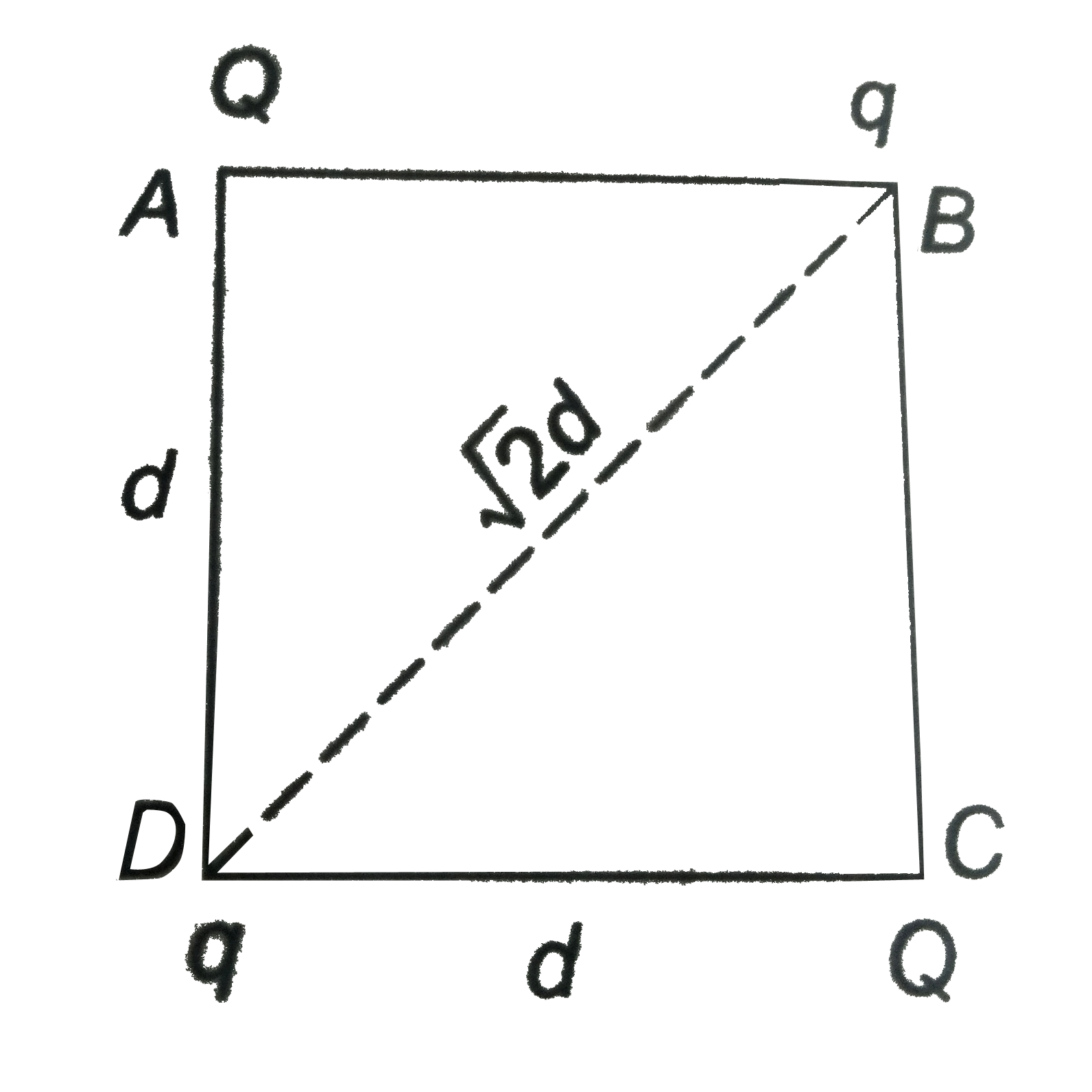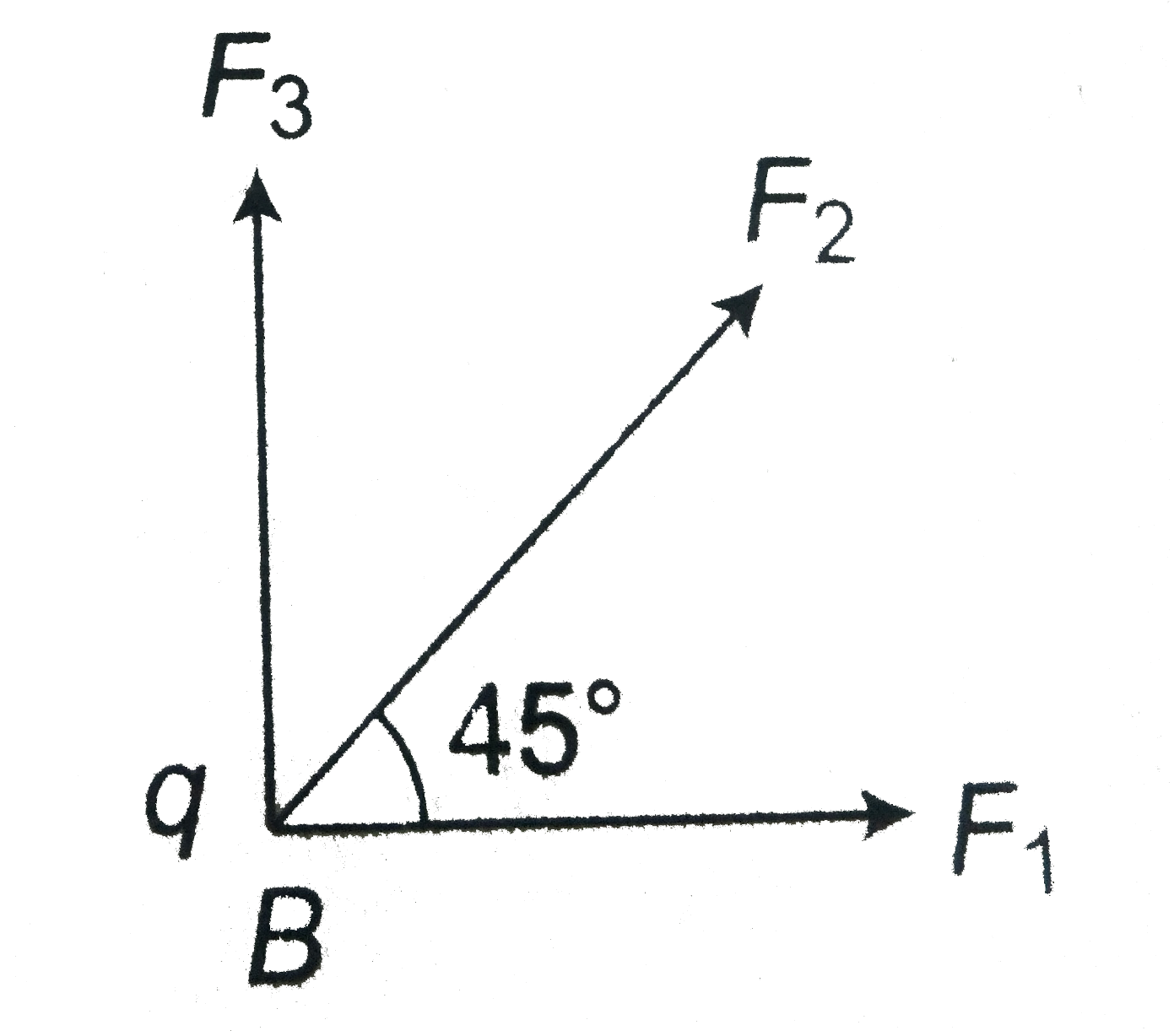A charge Q is place at each of the opposite corners of a square. A charge q is placed at each of the other two corners. If the net electrical force on Q is zero, then Q/q equals:
12√2
√2
1√2
−2√2
The correct Answer is:4
q(atB):
Due to Q(atA):F1=k.Qqd2 , along AB
Due to q(atD):F2=k.q.q(√2d)2, along DB
Due to Q(atC):F3=k.qQd2 , along CB
If a force is zero, its component are also zero.
Fx=F1+F2cos45∘=0
k.Qqd2+k.q.q(√2d)2.1√2=0
Q+q2√2=0
qQ=−2√2


Topper's Solved these Questions
Similar Questions
A charge Q is placed at each of the two opposite corners of a square of side a.A charge is placed at each of the other two corners. (a) if the reultant electrical force system of charges? What is the signification of its negative potential energy?
View SolutionTwo equal point charges Q=+√2μC are placed at each of the two opposite corners of a square and equal point charges q at each of the other two corners. What must be the value of q so that the resultant force on Q is zero?
View Solution
Knowledge Check
A charge Q is placed at each of the opposite corners of square. A charge q is placed at each of the other two corners. If the net electrical force on Q is zero , then Q/q equals.
A−1B1C−1√2D−2√2A charges Q is placed at each of the two opposite corners of a square. A charge q is placed to each of the other two corners. If the resultant force on each charge q is zero, then
Aq=√2QBq=−√2QCq=2√2QDq=−2√2QA charge +q is fixed to each of three corners of a square .On the empty corner a charge Q is placed such that there is no net electrostatic force acting on the diagonally opposite charge then
AQ=−2qBQ=−2√2qCQ=−√2qDQ=−4q
If a charge q is placed at each vertex of a regular polygon, the net electric field at its centre is zero. Show it.
View SolutionTwo point charges +Q each are placed at adjacent corners of a square. Other two point charges -Q each are placed at the remaining two corners of the same square . The side of the square is l. Find electric field intensity at the centre of the square.
View SolutionA charge 'Q' is placed at each corner of a cube of side 'a'. The potential at the centre of the cube is
View SolutionAssertion : Five charges +q each are placed at five vertices of a regular pentagon. A sixth xharge −Q is placed at the centre of pentagon. Then, net electrostatic force on −Q is zero.
Reason : Net electrostatic potential at the centre is zero.
View SolutionFour positive charges (2√2−1)Q are arranged at the four corners of a square. Another charge q is placed at the center of the square. Resulting force acting on each corner charge is zero if q is
View Solution

